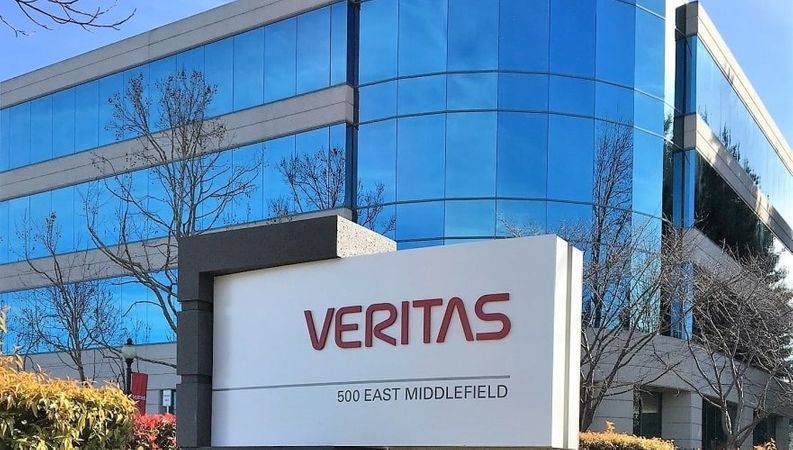Veritas Technologies is a market leader in the area of multi-cloud data management. The company offers its services to over 80,000 clients, including several Fortune Global 500 companies, to support their data’s security, compliance, and reusability.
About The Company
Founded in 1983 as Tolerant Systems, Veritas is an American company in the international information/data management business. The company is headquartered in California, USA. In the past 30 years, Veritas has assisted corporate clients in navigating every disruptive technology shift. The company’s integrated data protection and management strategy offer unparalleled versatility, efficiency, and cost benefits. Some of the company’s popular products and services include Access, VxFS, VxVM, NetBackup, NetBackup Appliances, Backup Exec, Cluster Server (VCS), Enterprise Vault, and Enterprise Vault. cloud, Enterprise Administrator, Volume Replicator (VVR), SANPoint, eDiscovery Platform, APTARE IT Analytics, etc.

History
In 1983 Tolerant Systems was formed with the goal of creating a fault-tolerant computer system using the concept of “shoe box” building components. The “Eternity Series” was the name given to this computer system. This shoe box contained two 320xx processors. The OS processor ran on TX( version of Unix) while the I/O processor supported Tolerant’s Real Time Executive. The company initially collaborated with AT&T to supply the disc management and file management software for the latter’s UNIX operating system and cooperatively supported and promoted the products to System OEMs. Veritas received royalties on the sales of the OEMs. In 1993, the company launched its IPO, and its business was valued at $64 million. In 2001, the sector saw a significant decline as the internet bubble burst. Despite this, Veritas expanded its revenue by 25% to $1.5 billion and maintained 25% operating margins. In 2004, the company merged with Symantec( now NortonLifeLock). Prior to this, the company was listed on NASDAQ-100 and S&P 500. Later in 2014, in order to concentrate on security, Symantec de-merged its data management business as Veritas Technologies. As part of this de-merger, Carlyle Group, a private equity company, acquired Veritas for $8 billion.
Acquisitions
Veritas generated $36 million in revenue by the end of 1996. For $4.2 million in equity, the company bought Tidalwave Technologies, which specialised in the High Availability of cross-platform software. Veritas entered the backup industry in 1997 when it purchased OpenVision Technologies, including NetBackup, a comparable-sized public company. In 1998 it acquired Seagate NSMG. In 2000, the company generated 1.2$ billion in revenue and was included in the S&P 500 and Fortune 1000. Veritas rose to the world’s tenth-largest software company by revenue and third-largest by market cap. In 2003, for a total of about $609 million, it purchased Israel’s Precise Software Solutions, a leading company in Application Performance Management (APM).
Founder – Mark Leslie
Veritas Technologies was founded by Mark Leslie, who also served as its CEO. As the CEO and Chairman, Veritas expanded to rank among the ten leading independent software companies and earned the distinction of joining the Fortune 1000. Mark Leslie is an entrepreneur, corporate executive, venture capitalist, and professor. He also teaches management courses at the Stanford Graduate School of Business. He also serves as managing director of the private investment firm Leslie Ventures. In 1996 Leslie received a Bachelor of Arts degree from NYU. He participated in the Harvard Business School’s management development program in 1980. Leslie started his first firm, Synapse Computer Systems, in 1980.
CEO – Greg Hughes
Greg Hughes is the current CEO of Veritas. He has over twenty years of executive experience in enterprise software. Before joining Veritas, he developed and oversaw the Software Practice at McKinsey & Company. Greg has degrees from the Massachusetts Institute of Technology and Stanford University’s Graduate School of Business.

I am a law graduate from NLU Lucknow. I have a flair for creative writing and hence in my free time work as a freelance content writer.